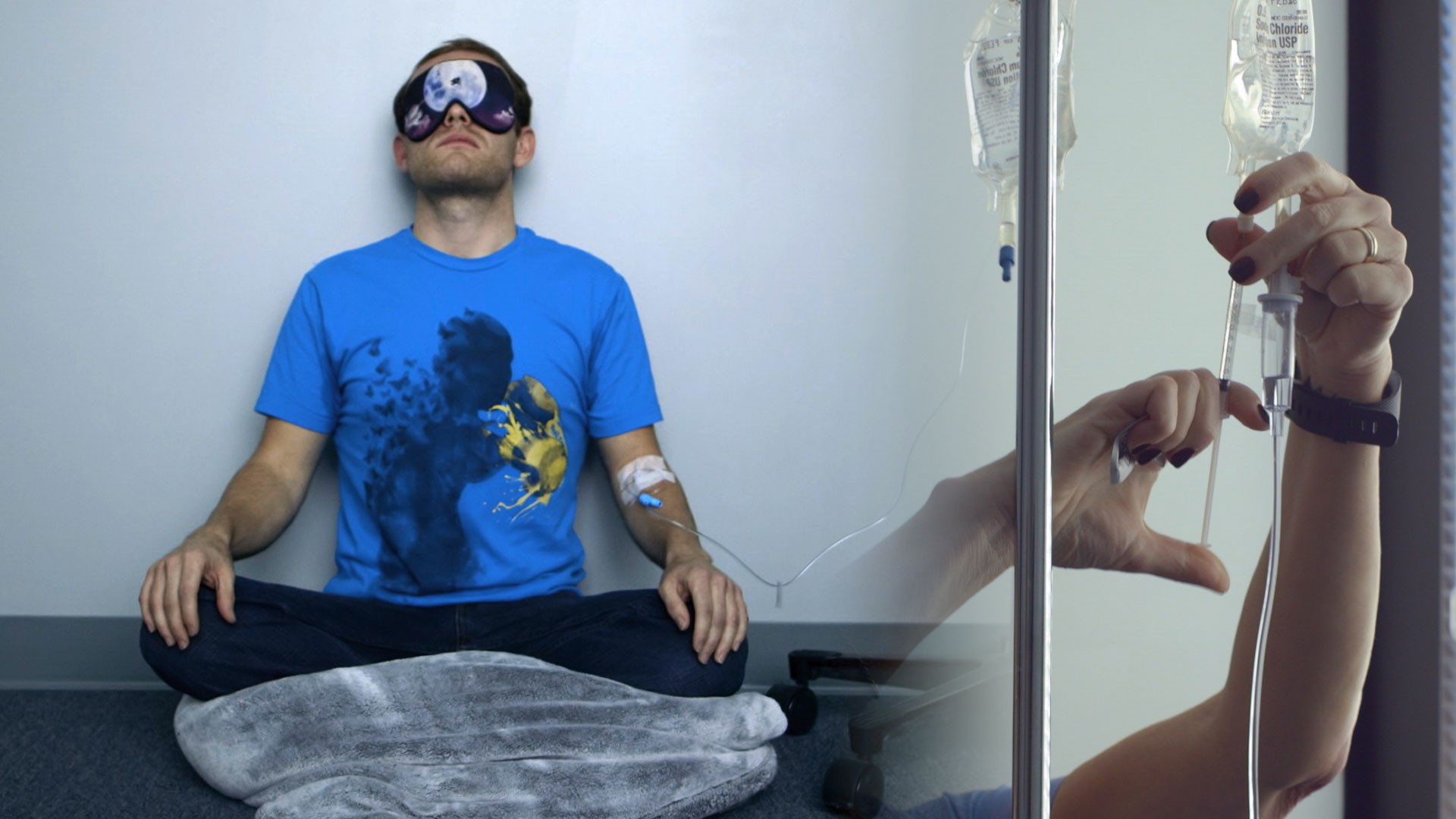What if you were reading this….in an email? Keep up to date with VICE and subscribe to our weekly newsletter.While doctors and patients have been claiming ketamine's antidepressant qualities for years now, the drug still has more of a reputation for inducing K holes than helping people out of them. But Australian researcher Colleen Loo, who's leading the world's largest trial of ketamine as an antidepressant, has got some extremely positive results.Released on Tuesday, Loo's latest research for the Black Dog Institute makes use of the world's first randomised control trial assessing the effectiveness and safety of ketamine as a depression treatment for elderly patients. The results, published in the American Journal of Geriatric Psychiatry, suggest that when delivered in repeated intravenous doses ketamine was highly effective in treating mental illnesses like depression."It's extremely promising, so far," Loo tells VICE. "Not only has ketamine been shown as effective, unlike other treatments it also works very quickly—almost immediately." But she cautions that the results are preliminary and not conclusive, but describes how ketamine has affected some patients so profoundly that they claim to be completely cured of their illness."One patient had depression for years and years and nothing had worked, he'd basically accepted that he'd never be well. After one treatment he came back to me and said he felt completely cured," she says. "However, for many patients, the effects wear off after a few days and the ketamine has to be repeatedly re-administered. And that's not ideal because of potentially damaging side effects associated with long term use."We are talking ketamine, after all: a raver's staple known to cause adverse cognitive and dissociative effects, elevated blood pressure, increased heart rate, and potentially permanent liver damage. However none of the 14 patients in this latest study experienced severe or problematic side effects immediately, despite receiving repeated doses of the drug.
WATCH: VICE visits a ketamine treatment clinic
We know what you're thinking—that ketamine high cures depression temporarily because, well, that's what all party drugs do. But Loo breaks down this misconception. "It's not the euphoric high that's effective, the anti-depressive effects actually take place after that." Patients initially described feeling the "woozy" affects you'd associate with taking tranquillisers, before the ketamine's anti-depressive effects kicked into gear.One of the unusual aspects of Loo's research is that it shows how easily and effectively ketamine could be potentially administered to depressive patients. "We are giving the treatment by a simple subcutaneous injection, which is just a small injection under the skin, administered with a tiny needle, like that used by diabetics," she explains.Ketamine depression treatments in experimental clinics tend to be administered intravenously through a much more complex and involved process. These "off-label" clinics are able to operate because ketamine can be administered by doctors legally as a painkiller. But what Loo is keen to emphasise is that hitting up your local doctor for a ketamine prescription isn't going to work. In fact, she says that clinics currently offering ketamine treatments tend to be not only ineffective but unsafe. "We need much more research into how to administer this properly and tackle side effects," she says.So this latest study is part of a bigger picture. Loo and her team have received substantial funding to continue their research which in its next stage will treat a larger number depressive subjects within a broader age range. She's confident that ketamine will be available in a safe clinical capacity in the near, not distant, future."Within the next few years, not longer than that."Colleen and her team are actively recruiting for the world's largest trial of ketamine for depression. Anyone interested in joining the trial can email ket.study@unsw.edu.au.Follow Kat on Twitter
Advertisement
Advertisement
WATCH: VICE visits a ketamine treatment clinic

We know what you're thinking—that ketamine high cures depression temporarily because, well, that's what all party drugs do. But Loo breaks down this misconception. "It's not the euphoric high that's effective, the anti-depressive effects actually take place after that." Patients initially described feeling the "woozy" affects you'd associate with taking tranquillisers, before the ketamine's anti-depressive effects kicked into gear.One of the unusual aspects of Loo's research is that it shows how easily and effectively ketamine could be potentially administered to depressive patients. "We are giving the treatment by a simple subcutaneous injection, which is just a small injection under the skin, administered with a tiny needle, like that used by diabetics," she explains.Ketamine depression treatments in experimental clinics tend to be administered intravenously through a much more complex and involved process. These "off-label" clinics are able to operate because ketamine can be administered by doctors legally as a painkiller. But what Loo is keen to emphasise is that hitting up your local doctor for a ketamine prescription isn't going to work. In fact, she says that clinics currently offering ketamine treatments tend to be not only ineffective but unsafe. "We need much more research into how to administer this properly and tackle side effects," she says.So this latest study is part of a bigger picture. Loo and her team have received substantial funding to continue their research which in its next stage will treat a larger number depressive subjects within a broader age range. She's confident that ketamine will be available in a safe clinical capacity in the near, not distant, future."Within the next few years, not longer than that."Colleen and her team are actively recruiting for the world's largest trial of ketamine for depression. Anyone interested in joining the trial can email ket.study@unsw.edu.au.Follow Kat on Twitter